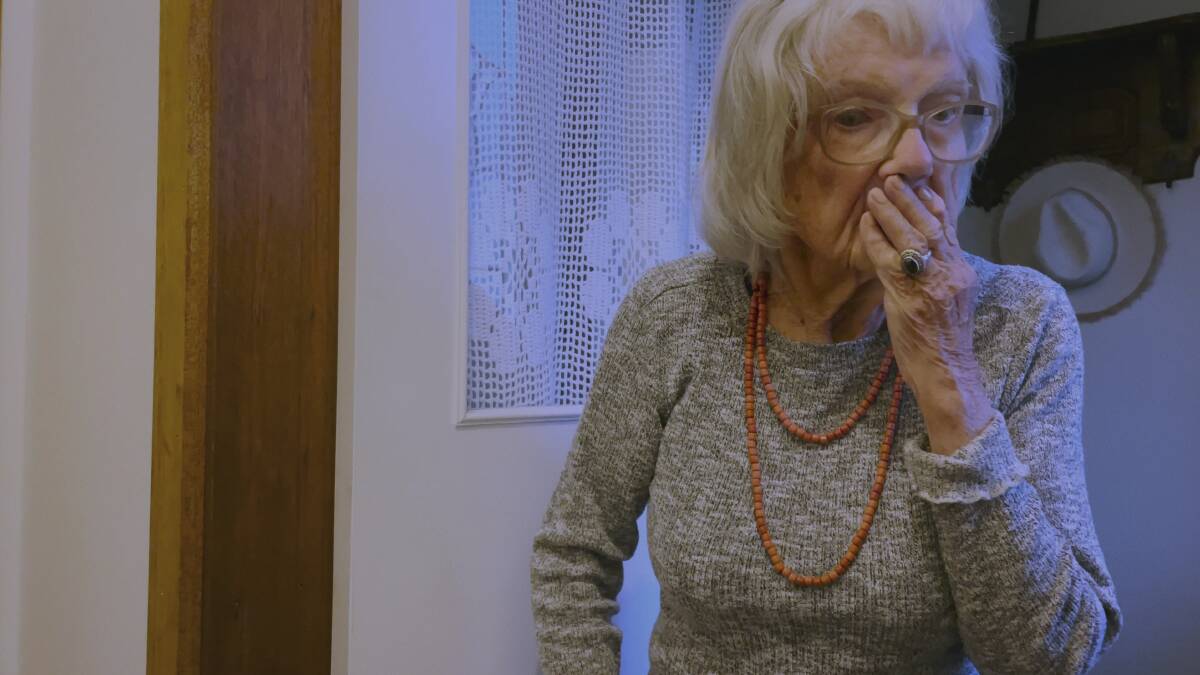Everybody's Oma. M, 93 minutes. 4 stars
Subscribe now for unlimited access.
or signup to continue reading
There are almost half a million Australians living with dementia, and that frightening figure is expected to double over the next 25 years.
That's a startling statistic and one that personally terrifies me as I walk around the house looking for the glasses that are on my nose or the car keys that I just put down.
I'm not trying to be funny in saying that.

The disease has made its way through my extended family and it isn't a pleasant prospect.
Sydney-based documentary filmmaker Jason Van Genderen has built a career telling other peoples' stories, but it turns out his greatest story is in his home.
Van Genderen's mother Hendrika lives with dementia, and lives with Jason and wife Megan and their two children.
The filmmaker in Jason can't help but shoot home movies of their family interactions, some of which get picked up by the mass populous of the internet and "go viral", turning Hendrika - referred to by all as "Oma", or Grandmother in their native Dutch language - into an international figure.
One of these viral moments comes after the family, and the rest of us, are locked down due to COVID.
Jason and Megan are worried that being stuck at home prevents Oma from enjoying the routines the family had established to keep her mind stable and her emotional wellbeing in place.
They build a replica Coles Supermarket in their family home and stock it with items out of their pantry so that Oma can enjoy her regular food shop.
The grandkids dress up as checkout staff. It's completely adorable and so understandably the stuff the internet loves, and the experience makes it as far as segments on Good Morning America and James Corden's The Late Late Show.
In one spectacular scene, the family project images of an aquarium on the windows of the home to recreate an outing. While she is delighted at the time, in the morning Oma doesn't retain any memory of it.
The family build a website to help Oma's many thousands of fans around the world keep up with her progress, but over time and particularly over the lockdowns, Oma's faculties deteriorate.
Jason shutters his business so he can focus on his mother's health, but even with that, the impacts on their marriage and the family's wellbeing pose ongoing challenges.
Van Genderen's documentary harvests plenty of his own family home movies to establish our understanding of their family dynamic and the woman Oma used to be before dementia made less of her.
He and his wife Megan construct scenes - he points out in the film his intention to document their collective family journey and fashion it into a film to help other families going through the same experiences - but they play those scenes naturally.
They are both filmmakers and subjects - and I say "both" because while Jason might be the professional filmmaker, wife Megan is doing much of the on-screen work managing Oma and attempting to contain the emotional fallout. Marriage is a partnership, and in this case, so is the filmmaking. The camerawork is sometimes an iPhone passed around, capturing those moments that can't be planned for when the professional documentary crew can be present.
There are talking-head interviews, plenty of family archive material and, thanks to Oma's stardom, there is plenty of online reaction content to harvest. The filmmakers use the conceit of text exchanges to reduce the spoken exposition. They share the positive love that comes their way from the internet, but also the negative.
This is a warm, emotional experience, plenty of happy along with the sad. It's a story of family love and resilience that will resonate with audiences.

